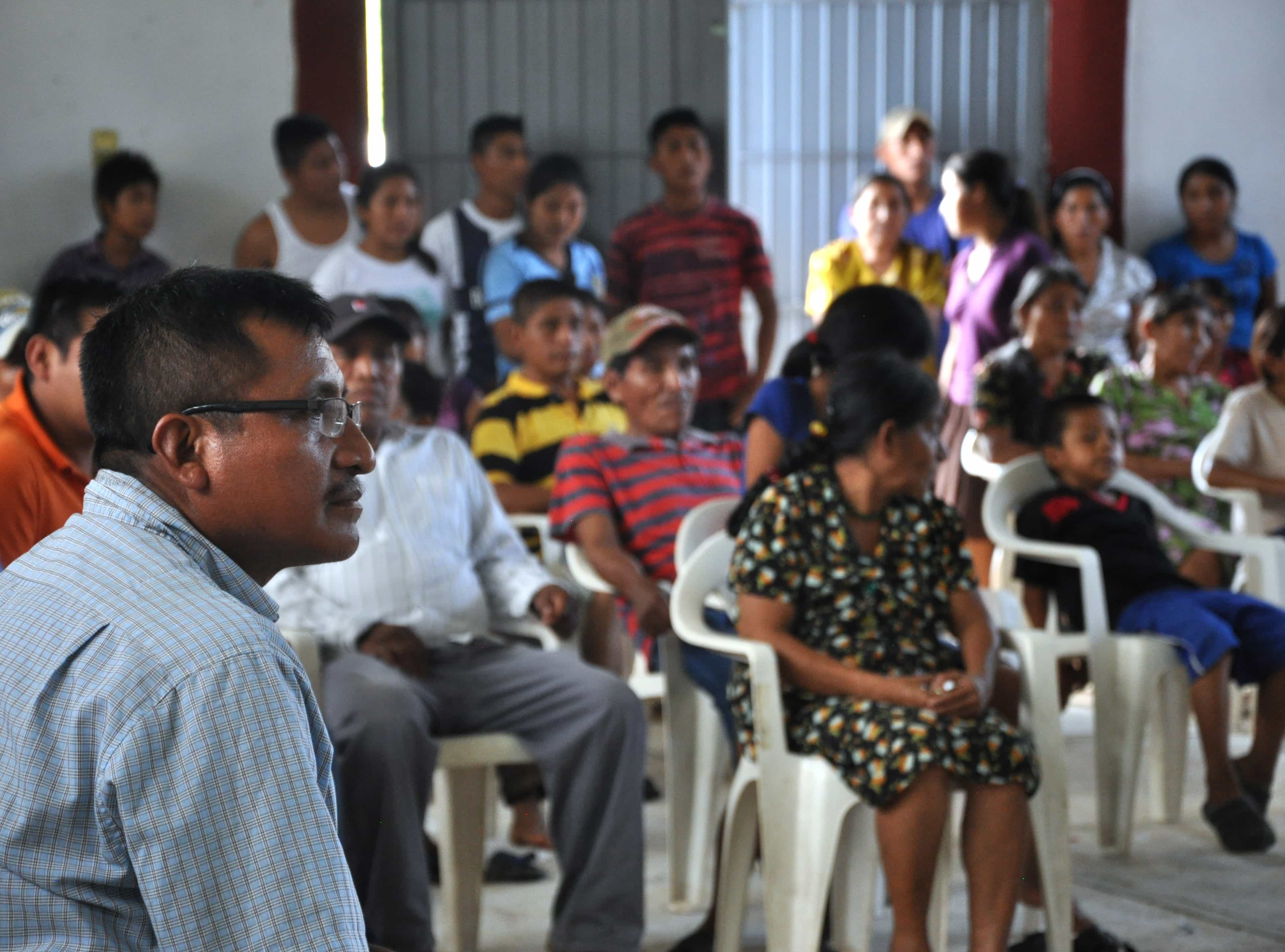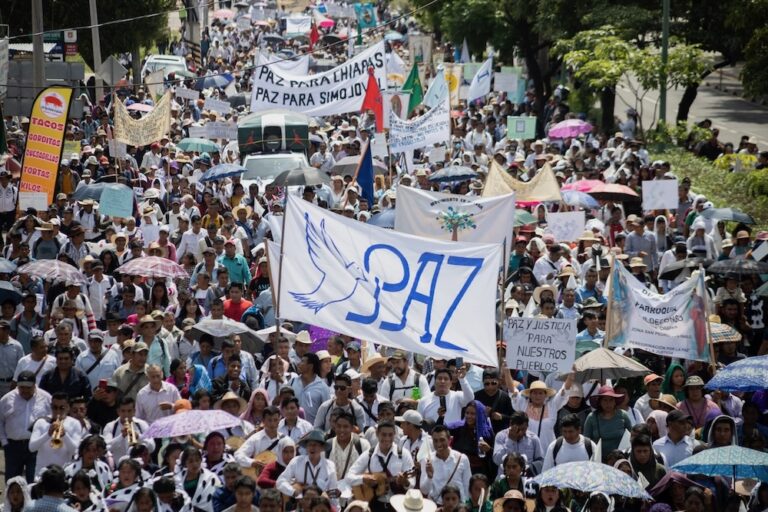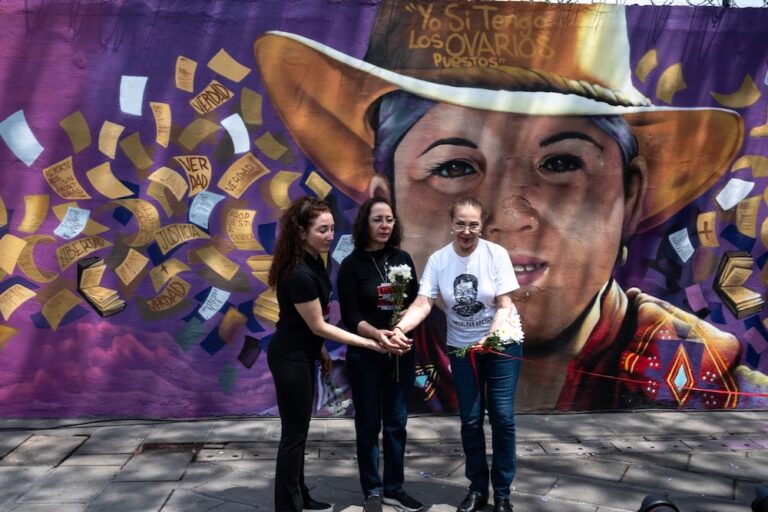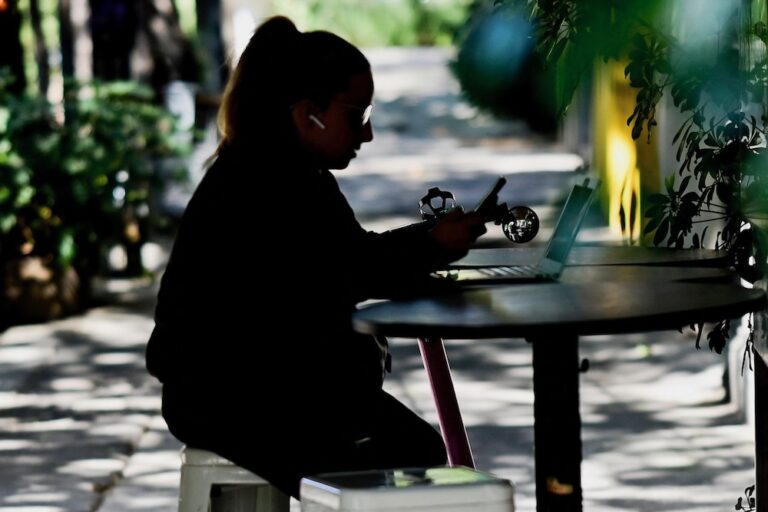With an eye on the upcoming International Day for the Universal Access to Information, José Peralta shares how an ARTICLE 19 initiative in Mexico is using ATI to ensure that Indigenous women have the power to create the communities they want.
The 3,000 residents of Lázaro Cárdenas, a community in the southeastern state of Chiapas, had a health centre with no doctor and no medications available. In Adolfo Ruíz Cortines, another Chiapas community, residents were pressured to vote for a particular political party. In Plan de Ayala, a project supporting indigenous women was inexplicably suspended.
These stories could have ended there and become part of the large number of examples of a failed state and defenceless communities. However, a project promoted by ARTICLE 19 in collaboration with Casa de la Mujer Ixim Antsetic (CAM, the Ixim Antsetic Women’s Group) turned these cases and others around. By using access to information requests and taking the needed follow-up actions, the women of these communities have managed to take on and resolve these situations.
The campaign, named Transparencia Proactiva (Proactive Transparency), began in February 2015. Its objective is to provide training to women and men in indigenous and rural communities of the Selva Norte area of Chiapas and the Pantanos region of Tabasco on topics relating to access to information rights as tools to use in defending other fundamental rights.
With more than 100 workshops carried out so far, and more than 27 communities reached, the campaign aims to bring knowledge of these tools to residents, giving them the ability to identify and deal with problems that affect their daily lives.
Dominique Amezcua, coordinator of the campaign and ARTICLE 19’s Right to Information Programme Deputy Office, told IFEX that there is a special focus on issues that afflict and result in a deterioration of the lives of women, allowing them to demand respect for their rights which have historically been denied.
In a country with one of the worst indices of violence in both the region and the world, and where attacks on freedom of expression are frequent (this year 1.5 attacks against journalists have been documented per day), a project such as this is a ray of hope in the panorama of the enormous challenges faced by Mexicans.
Charting a new course
The project’s impact can be seen in the outcomes of the stories described above.
In Lázaro Cárdenas, via an information request sent to the State Health Secretariat, the community discovered that their health centre had been assigned to have a doctor present, with clinic hours from 8:00 a.m. to 3:00 p.m. Monday to Friday, and with a monthly budget for the purchase of medications and other supplies. Upon obtaining this information, the entire population of the community mobilised to demand the actual presence of a doctor and as of September 2015 began to receive the required services.
In Adolfo Ruiz, an access to information request revealed irregularities in the actions of a regional coordinator, which resulted in pressure to vote for a particular political party. Community members filed a complaint and the official was dismissed as a result.
In Plan de Ayala, Amezcua said the project to support indigenous women was coordinated by a promoter who failed to come to the community at the time when the third support payment for the programme was requested.
“Within the framework of our workshops, the women requested information from the National Commission for the Development of Indigenous Peoples (Comisión Nacional para el Desarrollo de los Pueblos Indígenas, CDI) regarding the status of their project. The institution responded saying the project had been suspended until the women payed a balance owing of 10,000 pesos and provided documentation of where they had spent this money,” Amezcua said. The women said the money in question was part of the funds they had submitted to the promoter as payment for a training session.
According to Amezcua, “The promoter received the money, and said there was no need to generate an invoice to justify this expense since proof of the training could be provided via a list of attendees that he would provide. Via a second information request, the women found out that the promoter, rather than carrying out a training per beneficiary group, instead conducted just one training at a cost of 10,000 pesos, and kept the remaining 70,000 pesos that had been collected.”
The women mobilised and the public official was dismissed. However, the community’s residents are still awaiting resumption of the support that was unjustly withdrawn from them.
Resistance and distrust
A significant goal of the project is to empower women in the communities. Without a doubt, women represent the most unprotected group within the already precarious conditions encountered in these communities.
“Mexican society, in general, is characterised by machista attitudes and indigenous and rural communities are no exception. In this context the idea that women should not participate in the public sphere or in decision-making is still prevalent,” Amezcua noted.
Because of these attitudes, the workshops and trainings were not consistently achieving the desired results. When the women originally trained wanted to share what they had learned in and with their communities, many faced resistance and distrust. Some were even accused of trying to deceive their communities.
As a result, a strategy of “collective appropriation or adoption” of information was implemented, with the women designated as “multipliers”, which helped give them more credibility.
Amezcua went on to say that, “In addition to gender discrimination, another factor that contributed to distrust within the communities was that they did not see themselves as subjects with rights, much less interlocutors capable of bringing their demands to the government.”
Over the months, the women involved in the project made other advances within their communities. Being armed with information has allowed them to access political spaces that did not exist previously. The campaign’s project report highlights the fact that the work carried out with the “multipliers” has led to them being acknowledged by the men in their communities, who now address these women with recognition and respect.
Amezcua says that this project has helped to even out the situation between men and women, but that much remains to be done. Although women are now included in many political and community processes where their participation was previously denied, it falls short of a equality. For this to happen, there would have to be a paradigm and cultural shift that does not fall just within the legal sphere. To date, in several areas women still do not have the right to vote on community affairs and are denied the right to own land.
The future
The impact of the campaign can be measured by concrete, practical results, but it has also encouraged ideas and conversations more broadly about the right to information and inequalities within the community, and these have resulted in breakthroughs in how to deal with corruption and abuses of power.
However, much remains to be done. Among the major challenges highlighted by the campaign is the need for these communities to exercise their rights in an autonomous manner, without organisations like ARTICLE 19 providing support behind the process. Communitiies have to continue grappling with threats and attacks associated with efforts to address the systemic inequalities with which they live, and combat a lack of political will and interest on the part of government agencies.
“Something we have learned from indigenous communities and, above all, from the women who have participated in the project, is that public information is of no use if it is not read, analysed and contrasted with the reality of the lives of citizens; that when we demand something we need to be united, we need to make the information our own, and use all the means we have available and have gained in order to bring to light corruption and the deficiencies of our governments to bring institutional violence to an end, says Amezcua. “We believe the only way to combat the lack of political will is to persist in our efforts and continue demanding accountability.”
These organisations will persist in their efforts. The only question is how many more will step up to join their initiatives.
“Mexican society, in general, is characterised by machista attitudes and indigenous and rural communities are no exception. In this context the idea that women should not participate in the public sphere or in decision-making is still prevalent.”
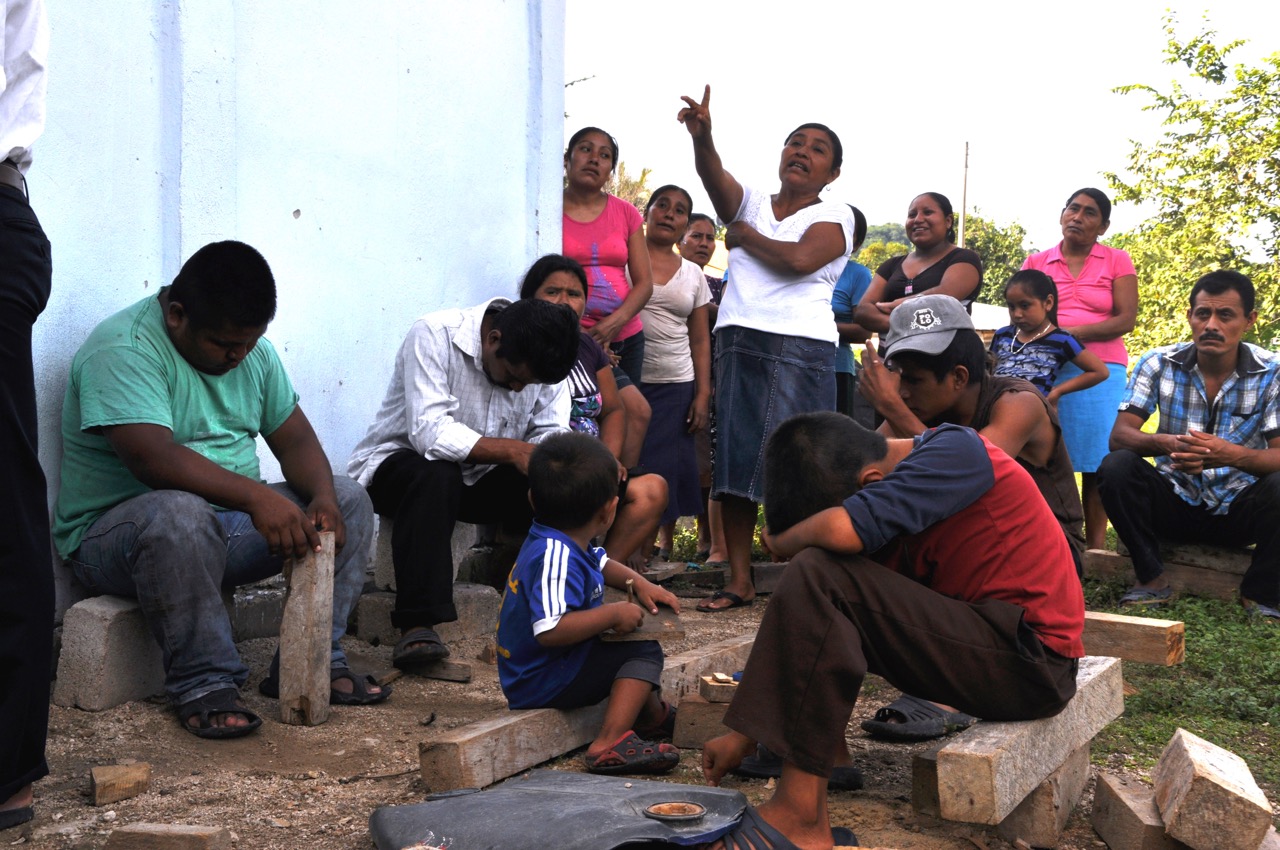
An assembly in Nuevo Egipto on the health centre “Lázaro Cárdenas”Lucía Vergara
“In addition to gender discrimination, another factor that contributed to distrust within the communities was that they did not see themselves as subjects with rights, much less interlocutors capable of bringing their demands to the government.”
